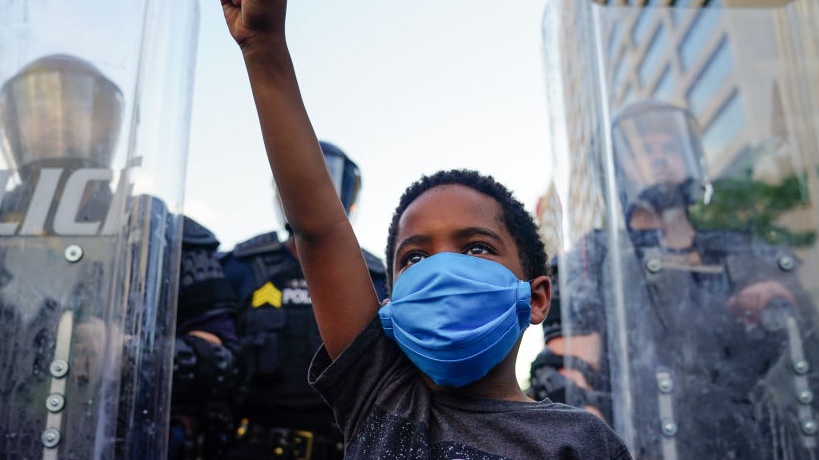A new study conducted by Susan Olzak, an emerita professor of sociology at Stanford University, examined protests' effect on police killings involving Black and Latino individuals.
Olzak's research, published by Time, revealed that in 170 cities between the year 2000 to 2019, protests directly influenced the decline in police killings of Black and Latino people, but not for white individuals. Olzak said that one rally in a city would drastically decrease Black casualties by 11% and Latino deaths by 7% in the following year.
George Floyd's death by now-convicted police officer Derek Chauvin ignited a significant increase of protests against police brutality, according to CNN.
A study by Ph.D. Travis Campbell found that if 4,000 people joined a Black Lives Matter protest, particularly between 2014 to 2019, one less person was killed by the police, according to Vox.
However, critics said that the protests brought more destruction, citing examples like the rallies held in Portland, Oregon, and Kenosha, Wisconsin. Olzak, however, set out to answer if protests lead to progressive change.
Olzak's study reviewed the establishment of citizen-run watchdog organizations and determined if their presence to hold police accountable influenced any reforms. However, she found these boards did not reduce police shootings or brutality.
Additionally, following Floyd's death, police departments in California declared they would ban chokeholds, according to the Los Angeles Times.
Mayor Bill de Blasio wrote a statement on June 7, 2020, saying he would work toward rebuilding "a fairer city that profoundly addresses injustice and disparity." :
"While we have taken many steps to reform policing in this city, there is clearly more work to do to strengthen trust between officers and the New Yorkers they serve," he added.
Saying “I hear you” is not enough. Here’s what I’m doing right now to make our city more just: pic.twitter.com/PoTu1xgxP2
— Mayor Bill de Blasio (@NYCMayor) June 7, 2020
New York lawmakers signed a bill rescinding the 50-A legislation that helped shield police officers from being held responsible for misconduct by keeping their records classified, The New York Times reports.
City officials in Dallas prohibited chokeholds and other airway-restricting maneuvers, The Hill reports.
Civis Analytics, a data science firm, conducted four polls, and the results revealed that 15 million to 26 million Americans were involved in protests connected to the death of George Floyd as of July 2020, according to The New York Times.
Olzak concluded in a Time article that "if American citizens are concerned with producing policies that reduce inequality in power, resources, and opportunity, the data are clear that protest holds some promise."
